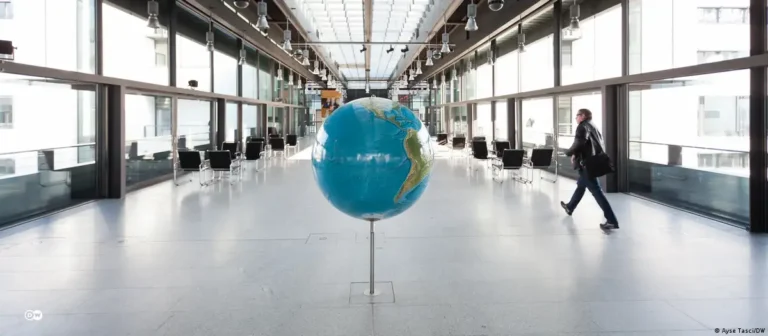In this series on recent Turkish emigrants, most of our stories have come from individuals working in health and technology fields who are graduates of Turkey’s elite schools. Not far behind come engineers and business graduates. In compiling this series, for example, we ran across three graduates of Bilkent University’s Industrial Engineering school who were unaware of one another.

The technology sector has long enjoyed the reputation of one in which its highly mobile workers, especially software developers, are scattered around the globe. Ömer is one such example: “5-6 years ago, offers started coming through LinkedIn, mostly from the Netherlands. I wasn’t interested at first, but eventually I ended up coming to the Netherlands.” He adds: “I have no plans to return [to Turkey] in the short term because I want a peaceful life.”
30-year-old Berat, who was mentioned in the first installment of our series, said, “I applied to many places, and finally settled on Estonia. Software is a big business in this country. Taxes and rents are low. They also seem to like Turks. You can survive with English.” Berat says that there are hundreds of Turkish software developers like him also living in the Baltic state, and complains “there’s no social life.”
Gökmen, 32, who settled in Malta five months ago and most recently worked as a data engineer at a bank, said, “I was not treated like a human being at the place I worked [in Turkey]. They make you feel valued here [in Malta]. We are not used to it. For example, they immediately offered me a position as a manager.”“All our friends have left Turkey. There were ten of us in our friend group, and now seven of us are out of the country,” he continued, echoing the anecdotes from many others.
Although career advancement and economic opportunity are driving forces behind this emigration, they are not the main motivation for many. For a significant number of emigrants, disillusionment with the country’s political situation plays a major role, with many growing tired following years of waiting and hoping for political change.
Oğuz, for example, a chemical engineer who owns a software company in Turkey, cited the failed coup d’etat attempt of July 15, 2016 as turning point in his decision to relocate to Germany: “I asked myself ‘What am I doing here?’ I could have been a manager in Turkey, but I accepted my role as a simple software developer here. But I love living here.”
Ertan, a software engineer who settled in England with a young daughter three years ago, said “I did not want to raise a girl in a country where I know that even the educated people in my family practice violence against women. I will not return unless my daughter wants it.”
Europe’s insatiable demand for emigrant Turkish doctors
Many of our recent conversations have not centered on software developers, but rather healthcare workers who have emigrated from Turkey. President Recep Tayyip Erdoğan has been known to deride such emigrants with divisive rhetoric at campaign rallies, saying “Let them go” to the citizens leaving the country for a better life abroad. While such rhetoric is likely a driver of emigration among medical professionals, these emigrants have it harder than, for example, their peers working in technology or software development. While English is typically sufficient to secure a job working in software development across Europe, doctors emigrating from Turkey face the additional challenge of mastering the local language of their host country, which often requires a language proficiency exam.
On this topic, Germany is the first country that comes to mind. In a previous installment, we mentioned Kaan, a professor at one of Turkey’s leading medical facilities, as well as Aliye, a doctor from the Black Sea region. Both said that they had been studying German for over a year, along with other medical professional colleagues also hoping to leave Turkey. One striking anecdote from a Turkish doctor who had relocated to Germany was the following: “Thanks to the current situation in Turkey, it is now possible here in Germany to find a Turkish-speaking doctor in nearly every hospital.”
Many European countries gladly accept Turkish doctors. Musa, who recently relocated to Sweden with his family, explained his reasoning for the move, saying “violence against healthcare workers [back in Turkey], and loss of earnings [due to devaluation of the Turkish Lira]” as primary drivers of his emigration. Mehmet is another doctor living in Norway, who explained his move: “When I interviewed with the hospital I am working at now, they asked me about my motivation to move to Norway, a country with very few Turks, especially compared to Germany. Norwegian is also tough to learn. My only answer was this: The country I lived in as a child is no longer the same. When my 4 year old son goes cycling on the street here, I don’t need to worry about him being hit by a driver. Everyone stops here when they see a bike. In Turkey, they drive recklessly and I was very concerned about this.”
Özgür, who works as a manager in the healthcare field, said: “My wife is a nurse in a hospital, and we have a three-year-old son. We are preparing to settle in England. My wife passed her exams and we will soon start the visa process.” Explaining that his involvement in Turkish politics was also a reason for leaving, he continued: “The recent things we have seen and experienced in Turkish politics have further reinforced my decision to leave. Politics in this country is no longer an ideological struggle for a certain cause.”
Emigration by Master’s students on the rise
Recent years have seen a rapid increase in the number of students going abroad for master’s programs, especially in Europe. Şahin, a physics graduate of the prestigious Boğaziçi University in Istanbul, said the following after spending the past five years in Germany: “I used to say that I would return after I finished my master’s degree. After the last elections, my hope is gone. I think I will continue to live here.” Şahin says that among his former Turkish schoolmates, almost no graduate students stayed in the country, and most of them dispersed to Western countries, especially Germany.
Haluk, another Boğaziçi graduate who earned a master’s degree in artificial intelligence in Germany, says, “15 people I know came here. Those who stayed in Istanbul are in the minority.” Another older Boğaziçi graduate said that a WhatsApp group for alumni living abroad with close to 300 members overwhelmingly consists of emigrants who graduated from the school in 2018 or later.
Faik, who just two months ago left his master’s degree in mathematical physics at Middle Eastern Technical University in Ankara and started to study in Germany with a scholarship, justifies his decision as follows: “People in Turkey were very nervous and angry. I was living a nervous and unhappy life for stupid reasons. I’m 27 years old and happy here. There is little that can make me think of returning to the country.”
One last sentence from Faik is unsurprising: “And just like me, most of my friends like to go out.”













